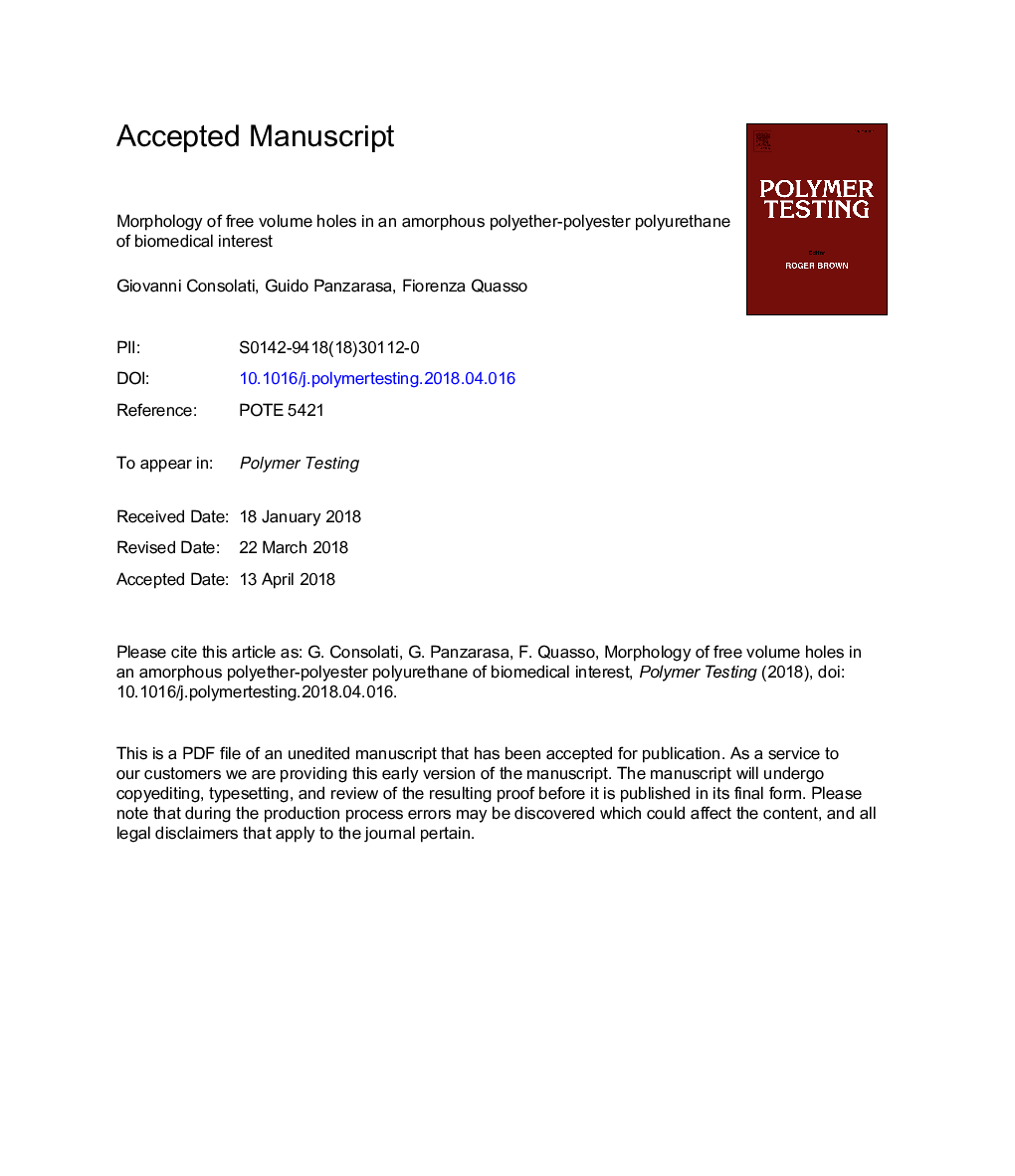| Article ID | Journal | Published Year | Pages | File Type |
|---|---|---|---|---|
| 7824911 | Polymer Testing | 2018 | 19 Pages |
Abstract
Positron annihilation lifetime spectroscopy (PALS) is a valuable technique for assessing the typical sizes of free volume holes in polymers. By coupling the results obtained from the positron annihilation spectra with those supplied by dilatometry, more precise information can be extracted on the free volume fraction and novel insight can be acquired on the shapes of the holes, demonstrating the limitations of the spherical approximation. In the present paper, we apply the combined PALS-dilatometry approach to study an amorphous polyether-polyester polyurethane, a polymer of great technological interest. We find that flattened and elongated holes, rather than spherical ones, better account for the behavior of the free volume fraction as a function of the temperature.
Related Topics
Physical Sciences and Engineering
Chemistry
Organic Chemistry
Authors
Giovanni Consolati, Guido Panzarasa, Fiorenza Quasso,
